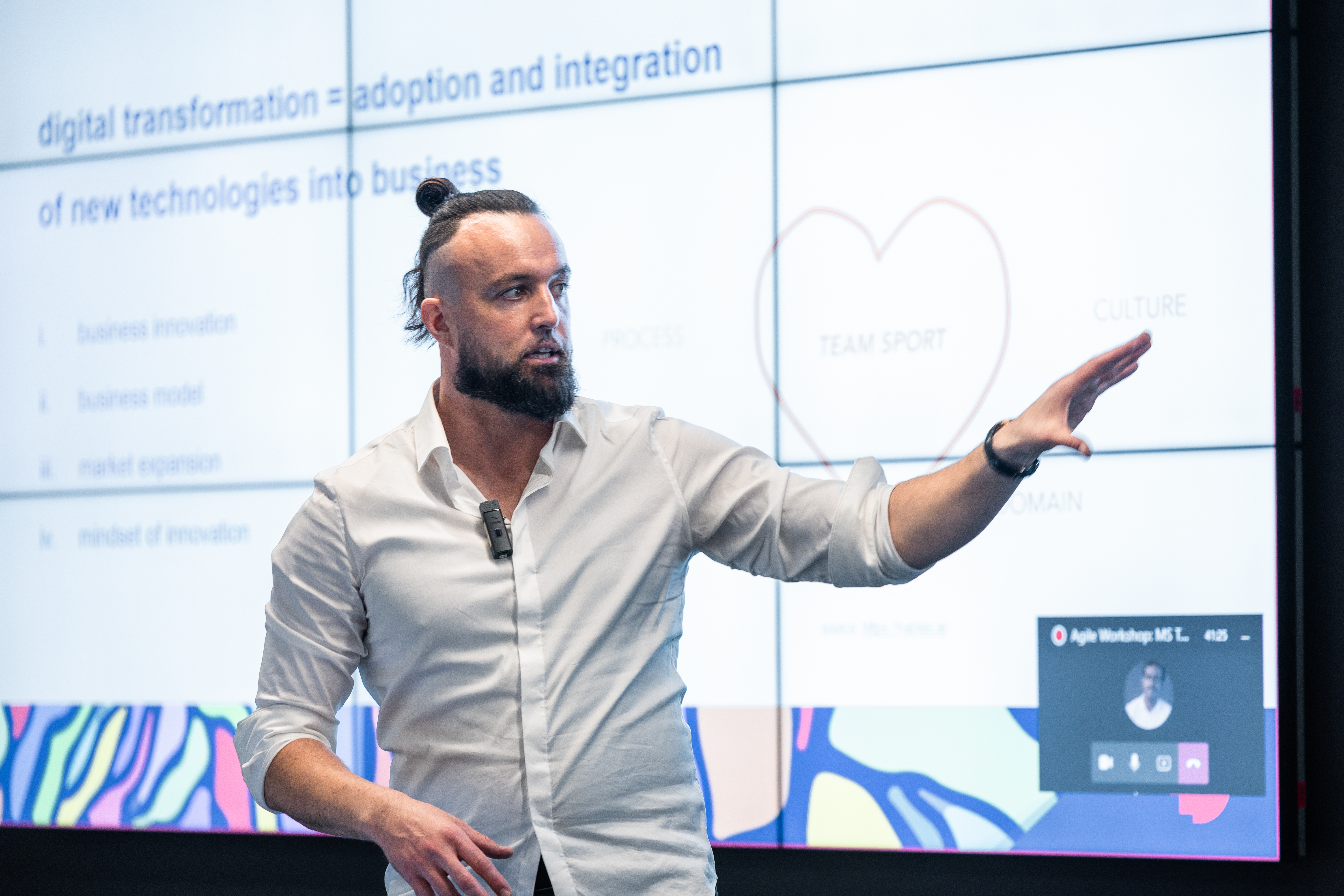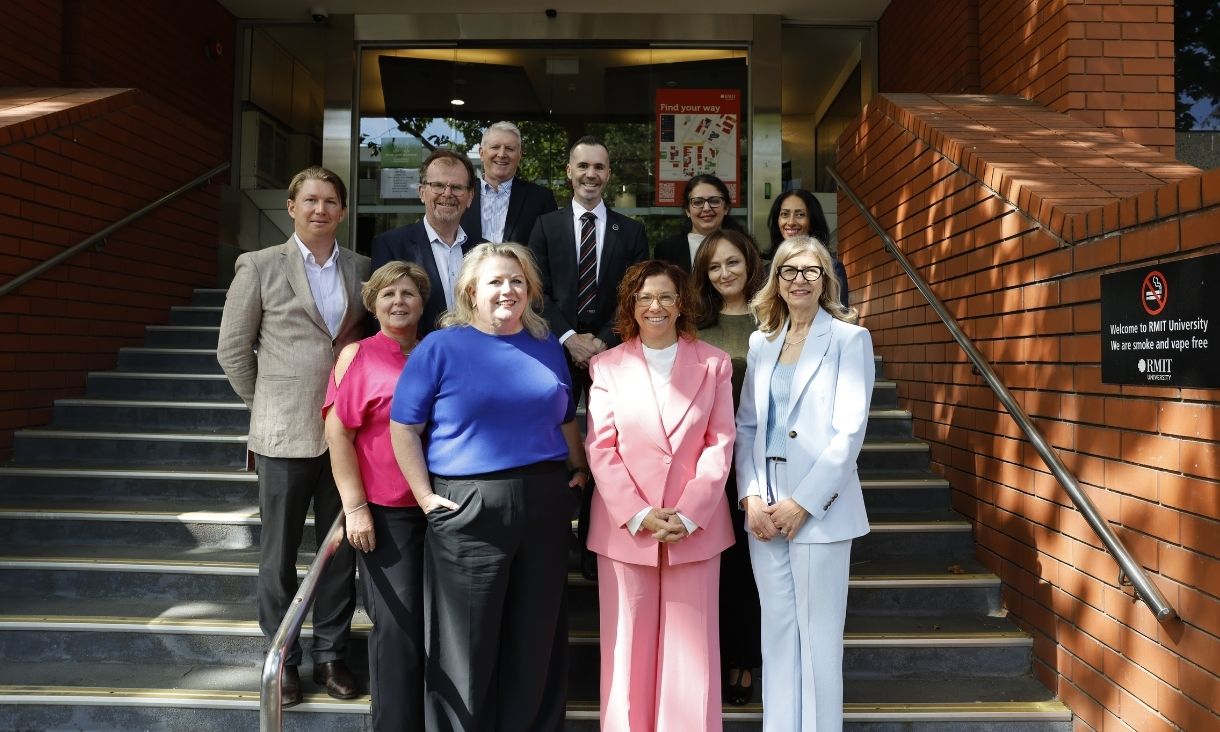RMIT’s School of Computing Technologies is also responding to the urgent and growing demand for work-ready tech graduates by collaborating with cross-industry companies and engaging experienced industry professionals to create real life learning experiences.
Senior Industry Fellow in Data Science, Tomas Turek, joined RMIT this year from the financial services sector, where he leads large digital transformation projects and contributes to innovating digital products with AI for various companies across the globe. He is also the founder of Nablas AI, a company that helps organisations to adopt AI and create sustainable economies at scale.
Now, he is using that experience to create world-class industry experiences for AI education and research, coordinating agile Data Science projects with cross-industry companies and mentoring student teams to develop data-driven capabilities.
He is also teaching courses in AI & Data Science professionalism for postgraduate students to make them work-ready for their machine learning careers.
According to Turek, digital transformation curricula for university-industry courses are critical to addressing what is missing and needed in the industry.
“Digital transformation skills should be taught by real practitioners successfully applying new technologies across industries,” he says.
“Up-skilling the workforce is a difficult task for emerging technologies with strong hype cycles like deep learning and edge computing. This gives a false impression to the public that everyone is an expert, while only few practitioners have hands-on experience in building production-grade software with such technologies,” he said.
Professor Lawrence Cavedon, Associate Dean of Data Science said bringing experienced industry experts to the University not only enhances university-industry capabilities but is also an “uplifting experience” for students.
“RMIT is committed to supporting digital transformation of the industry and developing future focused technology experiences. We saw a need to increase the capabilities of our Data Science students and offer them real-world skill building experiences during their studies. We have raised the bar for our students by appointing Tomas as our Senior Industry Fellow in Data Science,” he said.
Students at the School of Computing Technologies are also provided with industry related opportunities as a part of their degree programs. This is a collaborative Work Integrated Learning (WIL) effort led by industry experts mentoring students and providing input on the work-ready curriculum to satisfy the current and future industry needs.
Partners ranging from diverse industry verticals such as finance, health, sustainability, and technology provide digital challenges for students to solve in agile software development projects.
RMIT has also partnered with Commonwealth Bank in its venture to offer more than 400 new student opportunities for software developers, cloud engineers, and cyber specialists through a new Melbourne Tech Hub.
This will further increase opportunities for students to work with companies on new tech, including Web 3.0 and Distributed Ledger Technology (DLT), as a part of their course work during their studies.
Next year, an industry year will be added to all undergraduate degrees to increase opportunities for WIL and paid internships to all students. Students also can develop their digital products into transformative businesses within a university start-up program. RMIT Activator delivers entrepreneurial experiences within the University to create value for students, alumni, staff, and industry partners.
Through exciting programs and experiences for all capabilities, RMIT Activator empowers individuals and organisations to build knowledge and networks for future impact.
RMIT Activator is also launching the RMIT Digital Transformation (DX) Hub in September 2022. DX Hub will bring together RMIT's world-class resources and industry partners to help provide the access to technology that will empower digitally transforming educational programs as well as the operations of business and government organisations with which Activator partners.
Turek believes the “future of work will be shaped and workforce capabilities will be grown” through RMIT’s commitment to collaborative university-industry partnerships.
“This will prepare the future generations of graduates, making them work-ready, helping them secure their future careers while at the same time helping to fill the demand for work-ready tech professionals,” he said.
Story: Rachel Wells








